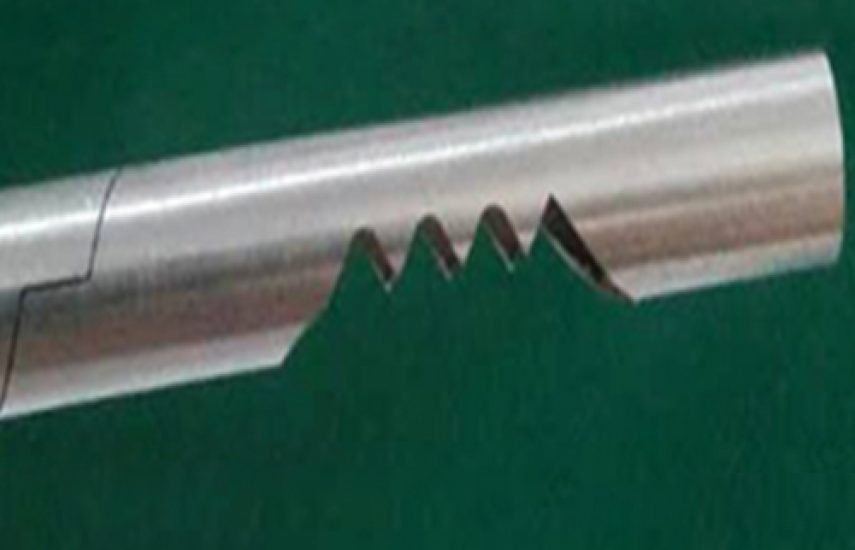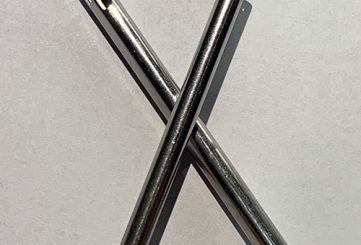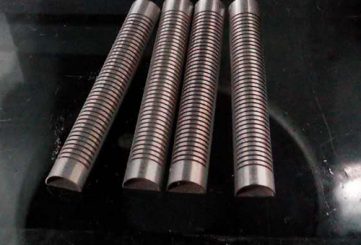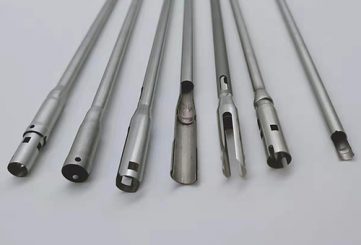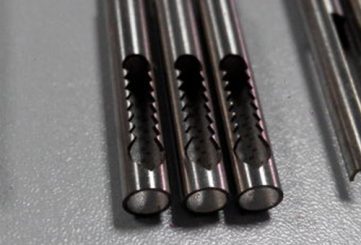Planer Teeth
Planer Teeth – Precision Surgical and Industrial Cutting Components
The Planer Teeth are high-precision cutting components designed for surgical and industrial applications. Crafted using advanced five-axis laser cutting technology, these teeth deliver exceptional accuracy, durability, and a burr-free finish. Made from medical-grade materials like stainless steel, Nitinol, or Cobalt-Chrome alloys, they ensure reliable performance in demanding environments such as orthopedic and dental surgeries or precision engineering tasks. The laser-machined teeth feature smooth surfaces and intricate geometries, minimizing tissue trauma in medical procedures and ensuring optimal functionality in industrial settings. Tailored for high-performance tools, Planer Teeth meet the rigorous demands of modern medical and engineering applications.
الميزات الرئيسية:
- دقة عالية: Seam width of 18–30 µm with machining accuracy of ≤±10 µm ensures perfect results.
- Superior Finish: Smooth, burr-free edges for optimal functionality and reduced tissue trauma.
- Flexible Processing: Supports complex shapes, including centripetal and vertical openings, for versatile applications.
- Automated Efficiency: تغذية مستمرة لإنتاج عالي السرعة وبدون انقطاع.
- تنوع المواد: Compatible with a wide range of medical-grade and industrial alloys.
- التوافق الحيوي: Meets stringent standards for safe use in medical environments.
Certification and Standards:
Certified under ISO 9001, ISO 13485, and ISO 10993 for quality management and biocompatibility. Compliant with CE and FDA regulations for medical device safety and efficacy.
Stainless Steel SUS304:
Medical-grade SUS304 stainless steel (austenitic chromium-nickel alloy), offering excellent corrosion resistance and mechanical properties.
- التوافق الحيوي: Low risk of allergic reactions or toxicity, ideal for direct tissue contact in medical procedures.
- Mechanical Properties: High tensile strength (approximately 505 MPa) and elongation (up to 40%), providing flexibility without brittleness.
- Surface Finish: Laser-machined for smooth, burr-free edges, reducing the potential for tissue trauma or contamination.
- Thermal Stability: Maintains integrity across a wide temperature range, suitable for sterilization processes like autoclaving.
316L Stainless Steel:
316L Stainless Steel is a medical-grade austenitic chromium-nickel alloy renowned for its excellent corrosion resistance and biocompatibility. With a tensile strength of approximately 485–550 MPa and elongation up to 40%, it offers durability and flexibility without brittleness. Its low carbon content enhances weldability and resistance to intergranular corrosion, making it ideal for medical implants and instruments. Laser-machined for smooth, burr-free surfaces, it minimizes tissue irritation in sensitive applications.
Cobalt-Chromium Alloys (L605):
Cobalt-Chromium Alloys (L605) are medical-grade materials valued for their exceptional strength, corrosion resistance, and biocompatibility. With tensile strength ranging from 800–1500 MPa and hardness of 300–550 HV, they ensure durability in demanding medical applications. Ideal for implants and surgical tools, they support direct tissue contact with minimal reaction. Laser-machined surfaces provide smooth, burr-free finishes, enhancing performance in sensitive procedures.
Nickel-Titanium alloy:
النيتينول (NiTi)، وهو سبيكة من النيكل والتيتانيوم، مشهور بمرونته الفائقة وذاكرته الشكلية، مما يجعله رائدًا في التطبيقات الطبية. بفضل قوة شد تصل إلى 1200 ميجا باسكال ومعامل مرونة يتراوح بين 40 و75 جيجا باسكال، يتفوق النيتينول في البيئات الصعبة.
Aluminum alloy:
Aluminum Alloys are lightweight, medical-grade materials valued for their excellent corrosion resistance and high strength-to-weight ratio. With tensile strength typically ranging from 200–600 MPa and good ductility, they offer durability for medical and industrial applications. Their biocompatibility supports use in non-implantable devices and components. Laser-machined for smooth, burr-free surfaces, they minimize contamination risks and ensure compatibility with sterilization processes.
Magnesium alloy:
Magnesium, a lightweight (1.74 g/cm³) and biodegradable metal, is ideal for temporary medical implants like stents and orthopedic screws. Alloys such as WE43 or JDBM offer tensile strength (200–420 MPa) and controlled degradation (6–24 months), safely dissolving into non-toxic byproducts (Mg²⁺ ions). Its biocompatibility (ISO 10993) and ability to support tissue regeneration make it suitable for cardiovascular and bone repair applications. Magnesium’s elastic modulus closely matches bone, minimizing stress shielding in orthopedic uses.
- Surgical Instruments: Creating precise planer teeth for orthopedic and medical devices.
- Industrial Components: Manufacturing parts requiring fine machining and superior edge quality.
- Dental Tools: Shaping components for high-accuracy dental equipment.
- Microsurgery: Suitable for procedures demanding fine precision and minimal tissue disruption.
- Medical Device Manufacturing: Used in the production of high-precision surgical components.
- Material: 304 & 316L Stainless Steel, Ni-Ti Alloys, L605 Cobalt-Chromium, Aluminum, Magnesium
- Cutting Seam Width: 18–30 µm
- Machining Accuracy: ≤±10 µm
- Surface Roughness: Ra <0.2 µm
- Manufacturing Process: Five-axis laser cutting with automated feeding
- Operating Temperature: -20°C to 300°C, suitable for sterilization
- Degradation: Non-degradable, designed for long-term stability

